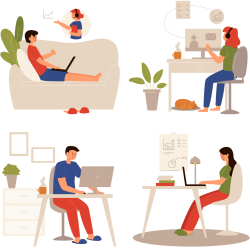To provide the best experiences, we use technologies like cookies to store and/or access device information. Consenting to these technologies will allow us to process data such as browsing behaviour or unique IDs on this site. Not consenting or withdrawing consent, may adversely affect certain features and functions.
The technical storage or access is strictly necessary for the legitimate purpose of enabling the use of a specific service explicitly requested by the subscriber or user, or for the sole purpose of carrying out the transmission of a communication over an electronic communications network.
The technical storage or access is necessary for the legitimate purpose of storing preferences that are not requested by the subscriber or user.
The technical storage or access that is used exclusively for statistical purposes.
The technical storage or access that is used exclusively for anonymous statistical purposes. Without a subpoena, voluntary compliance on the part of your Internet Service Provider, or additional records from a third party, information stored or retrieved for this purpose alone cannot usually be used to identify you.
The technical storage or access is required to create user profiles to send advertising, or to track the user on a website or across several websites for similar marketing purposes.
 The Government made an empty promise when it said the apprenticeship levy would boost the amount of money employers spend on workplace training, claims a new report from the CIPD. Addressing employer under-investment in training, the case for a broader training levy reveals that 31 percent of levy paying employers say the levy will lead them to increase the amount they spend on training. This is down from 45 percent in July 2017 when it was introduced. (more…)
The Government made an empty promise when it said the apprenticeship levy would boost the amount of money employers spend on workplace training, claims a new report from the CIPD. Addressing employer under-investment in training, the case for a broader training levy reveals that 31 percent of levy paying employers say the levy will lead them to increase the amount they spend on training. This is down from 45 percent in July 2017 when it was introduced. (more…)

































November 28, 2016
Britain is missing a trick by not getting workplace training right 0
by Steve Hill • Comment, Workplace
(more…)